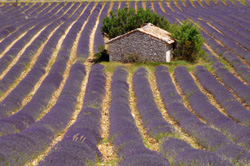Promoting scientific support for rural development
The 'Agriculture for sustainable development: A dialogue on societal demand, pressures and options for policy' (Sasspo) project worked to inspire a more integrated and sustainable approach to European agriculture and rural development, on the strength of existing research results and democratic deliberation. Promoting a future-orientated approach, the EU-funded project aimed to provide the tools necessary for the development of future policies. These should assist researchers to meet environmental, social and economic objectives in an integrated way. Project objectives focused on, among other aspects, understanding the critical interplay of market reform, rural development policies and agri-environmental schemes, establishing cooperation in the area of agricultural policy, and providing a forum for sharing experiences of old and new Member States. Seeking to arrive at a new research agenda in line with policy reform options, Sasspo members gathered producers, scientists, policymakers and relevant stakeholders to discuss the benefits of scientific support to agricultural policies in Europe. Two policy dialogue seminars were organised towards this end. The first took place in Helsinki, Finland and included participants from EU countries of eastern and northern Europe, while the second in The Hague, the Netherlands was attended by EU countries of western and southern Europe. Joining country representatives from agricultural and environmental administration and research, the seminars also hosted representatives from the European Commission, the Organisation for Economic Co-operation and Development (OECD), Farmers' association (FNSEA), European Landowners' Organisation (ELO) and Friends of Earth. Project partners produced four policy briefs, based on the background notes and findings of the seminars, which were then summarised into one document presenting the main results of the Sasspo project. These included 15 crucial Common Agricultural Policy (CAP) issues, policy recommendations relevant to these and corresponding research needs. A project website was also established and relevant documents made available online.







